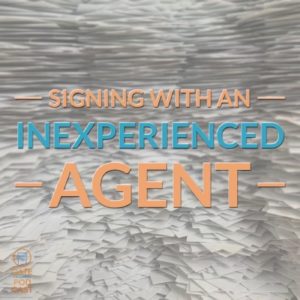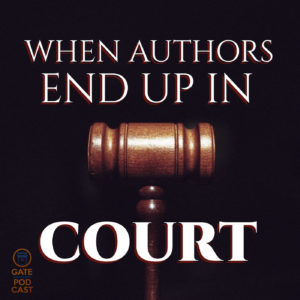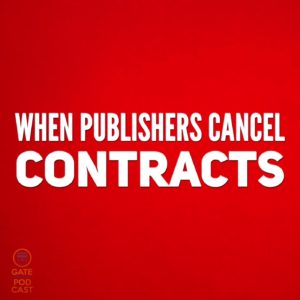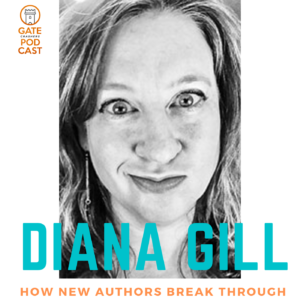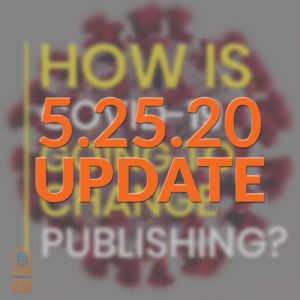- Agents
- Author News, Deals
- Awards
- Bad Poetry
- Blog News
- Books
- Career
- CBA
- Collaborating and Ghosting
- Conferences
- Current Affairs
- Deep Thoughts
- Favorite Books
- Featured
- Film
- Marketing and Platforms
- Proposals
- Publishing
- Questions from Beginners
- Quick Tips
- Religion
- Resources for Writing
- Self-Publishing
- Social Media Critique
- The Business of Writing
- The Writing Craft
- Thursdays with Amanda
- Trends
- Uncategorized
- Web/Tech
Category : The Business of Writing
-
Continue Reading "Should You Sign with an Inexperienced Book Agent?"
Should You Sign with an Inexperienced Book Agent?
 Your dreams are coming true. You’ve found a book agent who wants to work with you! The only problem? He’s only been agenting for a few months. What do you do? Do you take a chance on a newbie agent? Or do you wait for someone more seasoned?
Your dreams are coming true. You’ve found a book agent who wants to work with you! The only problem? He’s only been agenting for a few months. What do you do? Do you take a chance on a newbie agent? Or do you wait for someone more seasoned? -
Continue Reading "When Authors Go to Court"
When Authors Go to Court
Don’t take someone else’s ideas or content (don’t plagiarize).Don’t fabricate stories about the past and claim they are true (don’t lie).Don’t set out to make others look bad (don’t libel).Hold up your end of the publishing agreement (don’t breach your contract). -
Continue Reading "To Work or Not To Work With a Particular Agent"
To Work or Not To Work With a Particular Agent
Thoughts on agents as the publishing industry continues to transform:
Someone wrote to say, “I’ve been offered a contract on my novel. Since I don’t have an agent, should I seek one at this point? And if the agent accepts, should he or she still receive 15% of the deal, even if they didn’t market my book or secure the deal for me? Would it be better to have the agent simply review the contract for a fee?”
There’s quite a debate about this issue. I suppose many agents would say, “Sure — call me!” They’d be happy to get 15% for a deal they’ve done no work on. But my advice would be to think long term. Is there an agent you like and trust — someone you want to work with in the long term? If so, call him or her. Talk about the situation. Explain that you’ve already got a deal. The agent may be willing to take less in order to work with you. They may review the contract for a fee. They may have some insight into your situation. But don’t sign with someone just because you think you need an agent and someone is willing to say yes. If, for example, you’ve got a $10,000 advance coming, make sure it’s worth the $1500 to have the agent assist with this contract. Sure, it may be worth it — if you’ve got a complex situation, or a novel that is going to be made into a movie, or a potential bestseller… those probably call for a good agent to get involved.
That said, it doesn’t really seem fair to me to take the full commission for a book I didn’t sell, though not everyone in the industry agrees with me. You can always talk with a contract-review specialist, who will review your contract for a flat fee (usually somewhere in the $500-to-$1000 range). You can
-
Continue Reading "What Happens When Publishers Cancel Contracts"
What Happens When Publishers Cancel Contracts
Yes, there are times that publishers cancel book contracts.
But it’s never an emotional decision. It’s always done for very specific reasons. So no, your publisher isn’t going to wake up one day and suddenly decide they don’t want to do your book anymore.
Listen to the podcast episode to put your fears to rest.
-
Continue Reading "Historical Fiction & The Facts – Chats with Chip"
Historical Fiction & The Facts – Chats with Chip
Someone wrote to ask, “What is the author’s responsibility to the facts when writing a historical novel?” She noted she was writing about historical events, but wanted to know if she could change them. In a related note, someone else asked, “What is the ethical line between historical fiction and history?”

As I’ve said on previous occasions, I don’t think there is a line connecting fiction and history. Really. A novelist who is creating a story and weaving in actual people and events probably owes some debt to the reader to try and get the basic historical facts correct, I suppose (though even that is a questionable supposition, and many authors have altered facts and dates in order to tell a better story), but a novel isn’t a textbook. It doesn’t have a restriction that “you must have all your facts correct” or “you must accept the commonly held notions about a character’s motivations.” The author is inventing a story to entertain, or to explore themes and motivations, not to teach history.
So, while I wouldn’t create a story in which the Japanese attack Pearl Harbor on July 11, I see nothing wrong with an author creating a story depicting an interesting twist — that Roosevelt knew about the attack ahead of time, or that the attack was a rogue group of Japanese military, or that it was all a mistake done by aliens who were looking for Hawaiian shirts and a great recipe for mai tai’s.
“It’s a novel.”
It’s a novel. You can choose to tie events closely to historical facts, or you can choose to recreate history as you see fit in order to entertain readers. Have a look at the Quentin Tarantino movie Inglourious Basterds — in which the patrol sent to kill Nazis take out Adolph Hitler and the entire leadership of the Nazi party in a fire they set in a movie theater. (Um,
-
Continue Reading "How New Authors Break Through"
How New Authors Break Through
 It’s hard to get that first book deal. Really hard.
It’s hard to get that first book deal. Really hard.Yet every year, numerous debut novels get publishing deals—and some for big advance amounts.
So what causes a publisher to say “yes” to one debut novel and “no” to another?
-
Continue Reading "An Update on How COVID-19 Is Affecting Book Publishing"
An Update on How COVID-19 Is Affecting Book Publishing
 It continues to be an interesting time for book publishing.
It continues to be an interesting time for book publishing.In this update we share information that was provided by Penguin Random House, looking at at the book categories that have taken the biggest hits along with the ones that have done well.
We also discuss why the “free ebook” movement at the beginning of the pandemic turned out to be a bad idea, and we offer a bit of good news as bookstores begin to reopen and the Big 5 Publishers put in place initiatives to help keep independent retailers afloat.
Listen to the May 25 update on how COVID-19 is affecting book publishing.
-
Continue Reading "Ask the Agent: Indie publishing, ebooks, movie rights, et al."
Ask the Agent: Indie publishing, ebooks, movie rights, et al.
So if you could sit down at Starbucks with a literary agent, and ask him any question you wanted, what would you ask? I’m taking a few months to let writers ask those questions they’ve always wanted to talk over with an agent…
Does being a self-published author with several books help or hurt your chances of getting an agent to read something?
If the books are well written and have a good track record of sales, that will improve your chances. If the books are poorly done, or if you can’t show that you’ve sold many copies (or worse, the Amazon numbers reveal you haven’t sold many books), it will hurt your chances. I guess that’s not a surprise to you. But understand that indie-pubbed books don’t disqualify you from landing an agent, nor does having a printed book you did on CreateSpace help your cause very much. An agent is going to be looking for a great idea, expressed through great writing, from an author with a great platform who has a strong track record of sales.What advice would you give a first-time author? I’ve been trying to network, but not sure what else to do.
Know your audience. Take charge of your marketing. Have goals. Talk with someone who really knows how to market. Go to everyone you know. Do everything the publisher asks you to do. Research where your likely readers are online — maybe make a list of the top 100 sites your potential readers are gathering — then find ways to get onto those sites and get your name and book title in front of those readers. Learn to talk about your story in a way that’s interesting, and find venues to do that. Solicit reviews. Use the Amazon tools. Figure out some strategies you are comfortable with, and which you think will be effective, then do them. Don’t expect miracles. Don’t give -
Continue Reading "Ask the Agent: Platforms, Publications, and Mother’s Day"
Ask the Agent: Platforms, Publications, and Mother’s Day
As I write this, it’s Mother’s Day, and I happen to have been born on Mother’s Day oh those many decades ago. I’m home, my mom is long gone, and I realized writers have been sending in a LOT of questions, so I thought I should take a Sunday afternoon and try to do a bunch of them, in order to catch up on the pile a bit. Again, all this month we’re inviting authors to send the question they’ve always wanted to ask a literary agent, if only they could be face to face. Here are some that have come in recently…
I know many agents are looking for an author to have a big “platform.” How do you define a platform. And what does a big platform look like to you?
A platform is a number. Do you speak? How many people do you speak to over the course of a year? You write a column? What’s your readership? You’re on radio? What’s your listenership? You blog? How many hits do you get? You do a column? How many people read your work? You belong to organizations? How many people are you connected to? All of those are numbers — just add up the numbers, and you’ll know how big your platform is. The bigger the number, more people you have the potential to reach out to, the happier a publisher is going to be. More important is how many people you actually have some sort of relationship with — that is, how many of those folks do you speak to or consider an acquaintance? Can you suggest what percentage might actually purchase a book? A small publisher may be happy with a platform of ten to twenty thousand. A medium sized published may be looking for a platform that is at least forty to sixty thousand. A large publisher may not be all that interested if your -
Continue Reading "Ask the the Agent: The questions you’ve always wanted to ask"
Ask the the Agent: The questions you’ve always wanted to ask
All last month I was inviting writers to send in their questions — If you could sit down and be face-to-face with a literary agent, what would you ask? I’d like to continue down that path for another month. Here are some of the questions that have come in…
At a big writing conference last summer, I noticed that most agents and editors now insist on seeing a “completed manuscript.” I have a manuscript I’ve rewritten several times — you even once took a look and suggested I work with an editor to improve it. So what is the definition of a “completed manuscript”?
I have two answers for you… First, when an editor says they’re only looking at completed manuscripts, that means they aren’t going to seriously consider a proposal and sample chapters. They insist on an author showing them a finished manuscript, so that they lower their risk (no worries about missed deadlines, or the story going off the rails, etc). That’s the industry norm for first-time novelists these days. But my second answer is that “completed” to an agent can also means your manuscript has been revised, rewritten, and is ready to show to a publisher. I frequently see novels that have promise, but they need more work, so I’ll suggest changes to the manuscript, or I’ll encourage the author to work with a writing coach, or I’ll just give the author the names and emails of half a dozen editors and encourage them to get some professional assistance. Does that help?I know you represent a lot of thrillers. Is it possible to have a female protagonist in a thriller? Does she have to be teamed with a strong male in order to survive?
Sure, it’s possible. In fact, there are some publishers right now that are looking for strong female leads in some contemporary thriller novels. Examples of books with strong female leads


